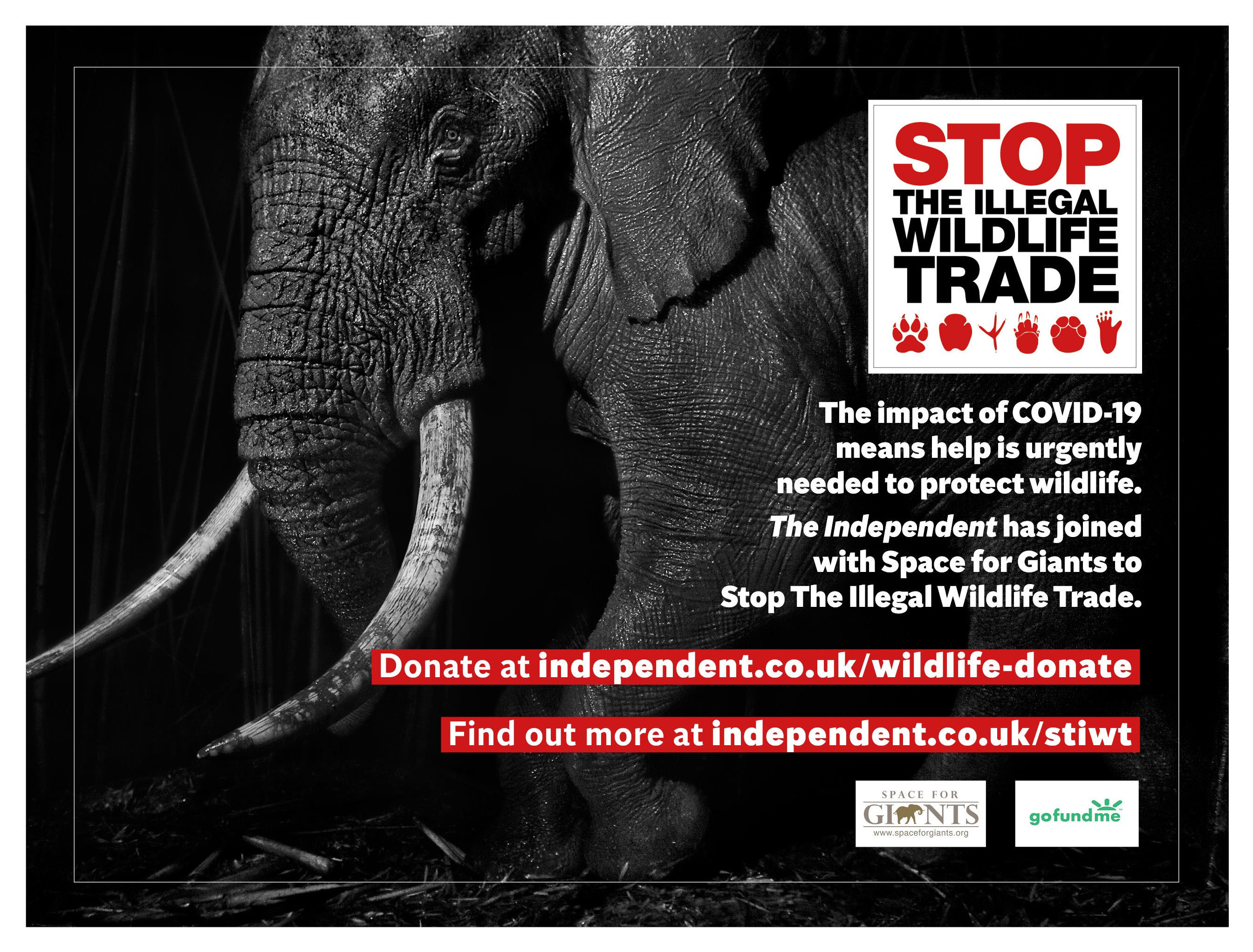Endangered animals for sale as illegal wildlife trafficking ‘thrives’ on Facebook
Species being sold include pangolins, African grey parrots and pygmy marmosets, the world’s smallest monkey

Your support helps us to tell the story
From reproductive rights to climate change to Big Tech, The Independent is on the ground when the story is developing. Whether it's investigating the financials of Elon Musk's pro-Trump PAC or producing our latest documentary, 'The A Word', which shines a light on the American women fighting for reproductive rights, we know how important it is to parse out the facts from the messaging.
At such a critical moment in US history, we need reporters on the ground. Your donation allows us to keep sending journalists to speak to both sides of the story.
The Independent is trusted by Americans across the entire political spectrum. And unlike many other quality news outlets, we choose not to lock Americans out of our reporting and analysis with paywalls. We believe quality journalism should be available to everyone, paid for by those who can afford it.
Your support makes all the difference.Facebook is a thriving marketplace for illegal wildlife trade, allowing “frightening” volumes of trafficking of endangered species, an investigation has found.
The platform’s algorithms are actively boosting the spread of content by illegal poachers, so that they are seen by more people, researchers say.
Posts of animals for sale included pygmy marmosets, the world’s smallest monkey, as well as tigers, leopards, pangolins and African grey parrots.
The social campaign organisation Avaaz, which carried out the investigation, said the trade was having a devastating effect on biodiversity.
It accused Facebook of systematically failing to enforce its own policies by both allowing the posts and also actively recommending similar content to that which researchers had already viewed.
Facebook’s guidelines ban content seeking to buy, sell or donate endangered species or their parts.
The investigators said they found 129 posts containing potentially harmful wildlife trafficking content in a matter of clicks just from Facebook’s search bar.
They said it showed how “frightening volumes” of online harmful wildlife trafficking content goes unchecked.
One Facebook page, since removed, called “Wildlife Trade, Pangolin Scale & Rhino Horn” appealed for bidders on their animals by posting a photo of a pangolin in a cage.
In another instance, traders’ phone numbers were publicly displayed alongside videos of caged bengal tiger cubs listed for sale.
The Independent has also seen pangolin scales, tiger cubs and African parrots for sale on Facebook.
Avaaz said more than half – 54 per cent - of the group recommendations made by Facebook’s algorithms to researchers included harmful wildlife trafficking content, and 74 per cent were thought to breach Facebook’s own policies.
After the researchers reported the content to Facebook using its “report post” button, the platform removed only 43 per cent of the posts.
“Avaaz’s research shows that, on Facebook, wildlife trafficking takes place in broad daylight,” said Ruth Delbaere, senior legal campaigner for the organisation.
“By insufficiently enforcing its own policies, Facebook is enabling an international trade that has devastating effects on biodiversity and the stability of natural ecosystems.”
Over the years, other investigations have found Facebook also enabling trade in ivory from endangered elephants and rhino, as well as posts advertising sun bears, walruses, tortoises, rhinos, sea turtles and shark fins.
In 2018 Facebook was among founders of the Coalition to End Wildlife Trafficking Online, which set an ambition to cut the illegal trade by 80 per cent by 2020.
A spokesperson for Facebook owner Meta said it was unfair to judge the company’s enforcement efforts on the basis of just 129 posts and said it had removed pages that violated its policies.
“The results don’t reflect the extensive work we’ve done to combat wildlife trafficking on Facebook,” the spokesperson said, adding that the company had introduced technology to find and remove such content, and to warn users who search for it.
“This is an adversarial space though, and the people behind this awful activity are persistent and constantly evolving their tactics to try to evade those efforts,” the spokesperson said.
Illegal wildlife trafficking is not just driving species towards extinction, but is also thought to pose a risk of transmitting diseases that could potentially infect humans.



Join our commenting forum
Join thought-provoking conversations, follow other Independent readers and see their replies
Comments